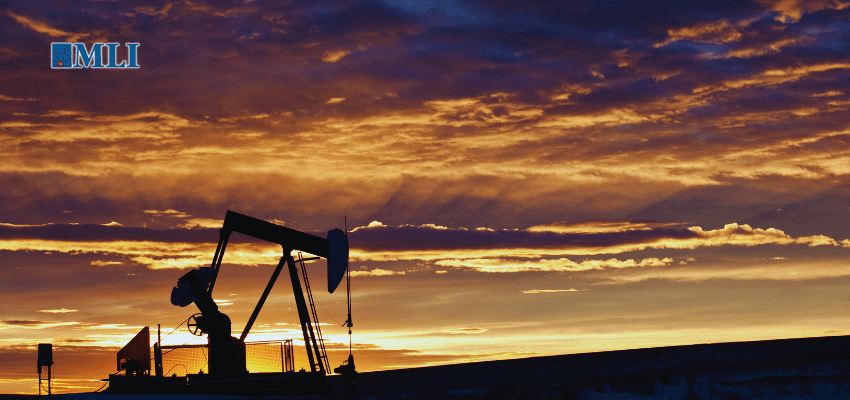This article originally appeared in the Financial Post.
By Heather Exner-Pirot, April 17, 2025
Somehow in Canadian politics in 2025 it has become vogue to promise to turn Canada into an energy superpower. After a decade of Ottawa suppressing the oil and gas industry, this rhetoric, which is driven by the fact that a record number of Canadians, 88 per cent, believe oil and gas are important to Canada’s economy, is more than welcome.
But what does it mean to be an energy superpower?
Fundamentally, it means you are able to leverage your energy resources to advance your national interests at the global level. That includes exercising both soft power — influencing peers and strengthening alliances through the promise of reliable, affordable energy — and hard power: asserting dominance or punishing adversaries by restricting supply.
Saudi Arabia, Russia and the United States — the world’s three biggest oil producers — are usually considered energy superpowers. Reserves of other resources — gold, wheat, and coal, for instance — can all be very useful. But for the past 150 years, oil has been the most important commodity. Cheap access, plentiful reserves and the ability to export it convey major economic and political advantages. Or should.
Saudi Arabia used its oil to punish the United States for backing Israel in the 1973 Yom Kippur War. Its oil embargo led to an energy crisis, inflation and severe economic damage, and spurred the establishment of the International Energy Agency.
Russia’s invasion of Ukraine in 2022 came on the heels of an energy crisis in Europe that may have persuaded it its leverage as a top provider of cheap natural gas to the continent would insulate it from retaliation. Russia’s ability to finance its military still depends on revenues from oil and gas production.
Following the shale revolution, the U.S. went from being the world’s biggest energy importer to its biggest producer. Though it continues to import crude oil, it has developed energy dominance in refining oil and liquefying natural gas. In 2022, it became the world’s largest LNG producer, which allowed it to make up much of Europe’s shortfall from sanctioned Russian supplies. But now under Trump it too is weaponizing its energy by coercing nations to buy its LNG or risk higher tariffs.
Where does Canada fit into this picture? We have three world-class energy reserves, each with over a century’s worth of production capacity: the oil sands in Alberta, the Montney and Duvernay natural gas basins in B.C. and Alberta, and the Athabasca uranium basin in northern Saskatchewan. We are already the world’s third largest exporter and fourth largest producer of oil and we hold its fourth largest reserves.
But although we have the resources and production of an energy superpower we do not act like one. We have been satisfied to hand the United States a monopsony — a monopoly on the buying side — over our oil and gas exports. We have behaved like a junior partner with minor regional significance rather than an important global player.
Even in responding to the White House’s hostile tariff attacks, we have rejected the idea of using energy for coercion or punishment, simply taking it off the table — though the U.S. imports more crude oil from Canada than any country has ever imported from another.
If we are too nice to weaponize our energy, we should at least use it for good. Almost all our close allies in Asia and Europe are net importers of oil, gas and minerals. To help them remain strong, prosperous and free to resist intimidation by authoritarian suppliers of their basic goods, we need to step in and provide a democratic supply for as long as they need it. Norway’s oil and gas production is anticipated to peak this year and American crude oil production soon after, so the need for our assistance is urgent.
We are now finally able to get important amounts of oil and gas to tidewater through the Trans Mountain pipeline and the soon to be completed LNG Canada facility fed by Coastal Gas Link. If we are ambitious — if we do want to be an energy superpower, with the privileges and responsibilities that come with it — then we need to maximize our two existing export pipelines and build one more each for natural gas and oil: Prince Rupert Gas Transmission and Northern Gateway.
Looking eastward, we can help Europe by rekindling an LNG project in the Saguenay area and by developing offshore Atlantic projects, including Newfoundland’s Baie du Nord.
We should also support nuclear’s renaissance and the clean baseload energy it promises by providing reliable supplies of uranium fuel to our allies, especially as Russia and China work to monopolize Kazakhstan’s reserves.
Having a second stable, rule-abiding democracy join the world’s energy superpowers would clearly be a force for good in the world. Canada needs to step up.
Heather Exner-Pirot is the director of energy, natural resources and environment at the Macdonald-Laurier Institute.
The author of this piece has worked independently and is solely responsible for the views presented here. The opinions are not necessarily those of the Macdonald-Laurier Institute, its directors or supporters. The Macdonald-Laurier Institute is non-partisan and neither endorses nor supports candidates or political parties. We encourage our senior fellows to comment on public policy issues, including during election campaigns, but the publication of such expert commentary should not be confused with the institute taking a position for or against any party or candidate.






